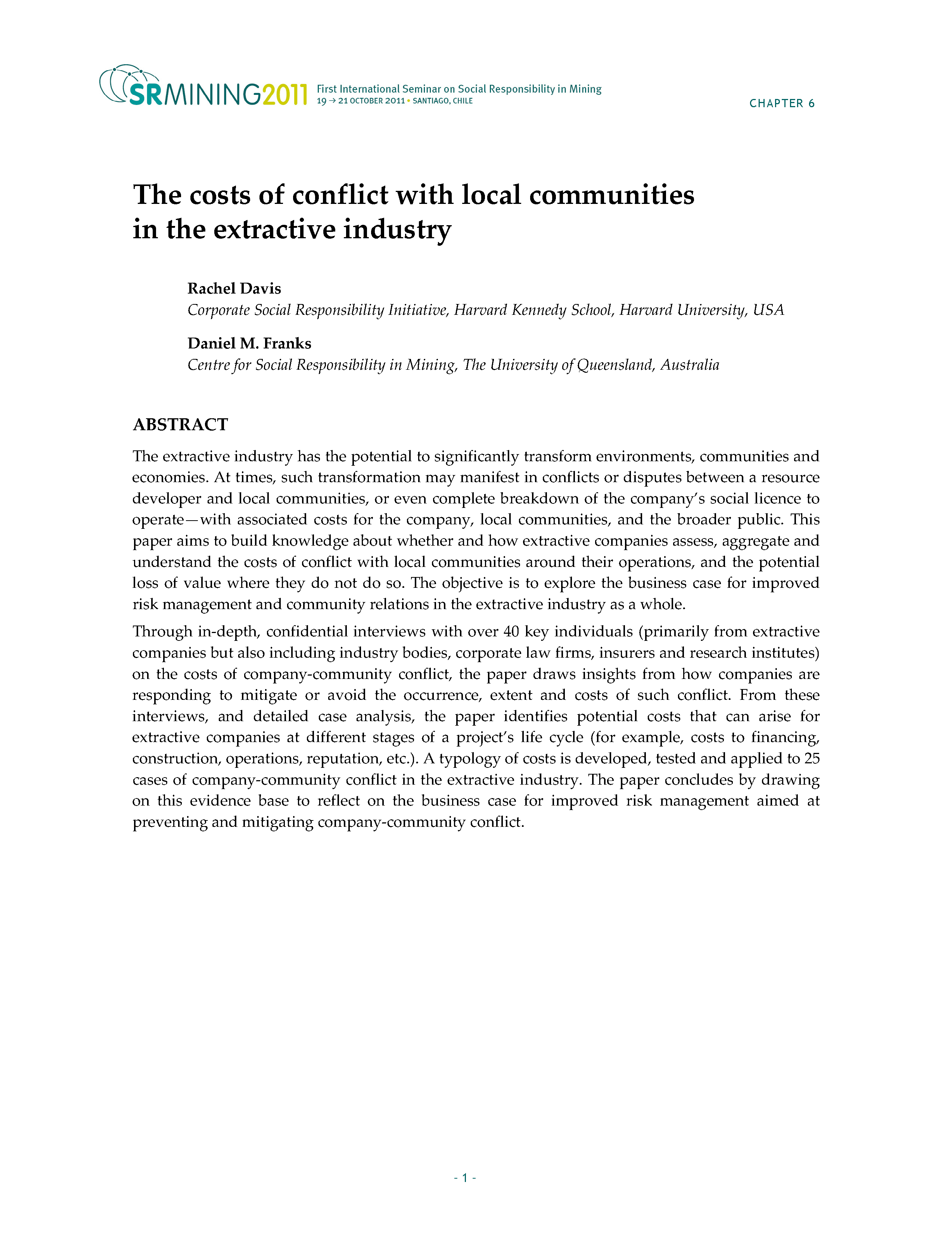The costs of conflict with local communities in the extractive industry
The extractive industry has the potential to significantly transform environments, communities and economies. At times, such transformation may manifest in conflicts or disputes between a resource developer and local communities, or even complete breakdown of the company's social licence to operate-with associated costs for the company, local communities, and the broader public. This paper aims to build knowledge about whether and how extractive companies assess, aggregate and understand the costs of conflict with local communities around their operations, and the potential loss of value where they do not do so. The objective is to explore the business case for improved risk management and community relations in the extractive industry as a whole. Through in?depth, confidential interviews with over 40 key individuals (primarily from extractive companies but also including industry bodies, corporate law firms, insurers and research institutes) on the costs of company?community conflict, the paper draws insights from how companies are responding to mitigate or avoid the occurrence, extent and costs of such conflict. From these interviews, and detailed case analysis, the paper identifies potential costs that can arise for extractive companies at different stages of a project's life cycle (for example, costs to financing, construction, operations, reputation, etc.). A typology of costs is developed, tested and applied to 25 cases of company?community conflict in the extractive industry. The paper concludes by drawing on this evidence base to reflect on the business case for improved risk management aimed at preventing and mitigating company?community conflict.
Publisher: SR Mining 2011
Region: Global
Type: Conference Paper
CITATION
Davis, R. & Franks, D. 2011. The costs of conflict with local communities in the extractive industry. SR Mining 2011

